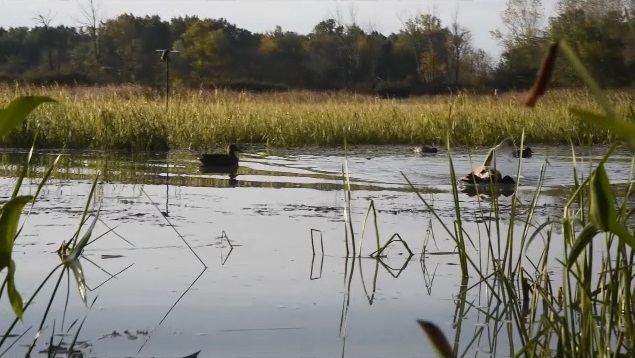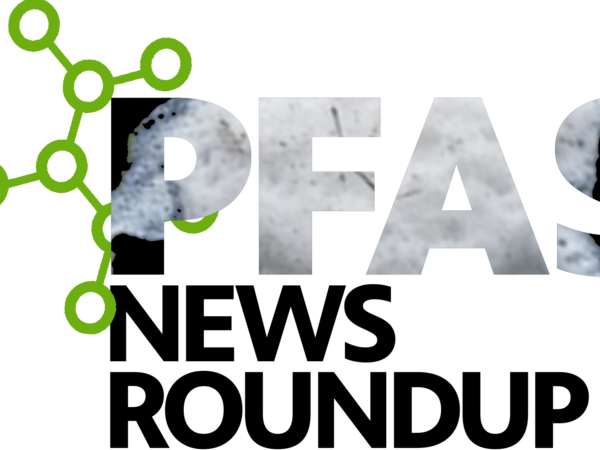
By Enrique Saenz, Indiana Environmental Reporter
More than 60 organizations, including local governments, environmental and conservation groups and water management agencies, sent a letter to Indiana state legislators, asking them to consider policy changes instead of supporting a bill seeking to remove all state protections for Indiana wetlands.
The letter, signed by the cities of Angola, Bloomington and Carmel, as well as the Merrillville Stormwater Utility, the Indiana Association of Soil & Water Conservation Districts and many conservation and environmental groups, speaks out against Senate Bill 389, a bill that seeks a full repeal of the state’s wetland protections and permitting authority for activities in wetlands.
The bill’s authors, all members of the Indiana Builders Association, have said the bill will help eliminate costs associated with land development.
Opponents of the bill, including many of the organizations that signed the letter, have said the repeal of state wetland protections would cause a series of repercussions that could affect the state’s wildlife and vegetation and cost taxpayers millions to take over functions done naturally by wetlands.
The letter tells legislators they will decide the future of state wetlands with only a fraction of the critical facts necessary to make the fateful decision presented at legislative sessions.
“To date, the debate has focused on how many wetlands to de-regulate. Other options need to be explored, or Indiana will lose these critical water resources and their water management functions — losses that cannot be undone and will result in significant financial impacts for Hoosiers in increased flooding, lost groundwater recharge, lost water purification and lost wildlife habitat,” the letter states.
The organizations also argue that Indiana’s wetlands are important water assets that are not comparable to those found in the other 49 states. The state depends on wetlands for economic reasons, like tourism and recreation, and resiliency, through water management and flood control.
Wetlands trap and slowly release water, filtering it through sediment and vegetation before it reaches surface and groundwater systems.
Without these natural processes, local governments would have to spend millions of dollars to replicate their functions like treating drinking water and reducing flood risks.
Among the information provided by the organizations is a refutation of arguments introduced by Sen. Chris Garten, one of the bill’s authors, and other SB 389 supporters, that claim farmers have been prevented from using their farmland due to “small wet spots in agricultural fields” that require costly mitigation.
The state’s Isolated Wetlands Law provides exemptions for isolated wetlands considered incidental features on agricultural land, defined as a quarter acre or less of land used for “normal farming activities.”
The exemptions would not apply to agricultural land if it was developed for non-farming uses, like commercial land development.
The organizations asked legislators to consider a series of alternatives to SB 389 that could alleviate some of the concerns being used to justify the bill.
“Wetland permit holders have complained about the complexity of the wetland permit process. They often find themselves with both federal- and state-protected wetlands in the same project and struggle with the differences. There are policy solutions that would streamline state wetland permitting, ensure scientifically based assessments, align with federal regulatory processes, and provide clear, simple exemptions for common land use challenges. These efficiencies have not been considered during this process because agency response was reactively trying to salvage this important program,” the letter states.
The organizations said the legislature can take actions like defining wetlands by their type in order to acknowledge the function value, as is done by the U.S. Army Corps of Engineers, the federal agency that manages wetlands on the federal level.
That would allow state agencies to clarify wetland permitting and mitigation.
The organizations also said the state could align wetland mitigation ratios to USACE’s ratio for wetlands of the same types, create tax incentives for preserving wetlands, create an Indiana Wetland Council to examine state policy and several other options instead of passing SB 389.
SB 389 passed the senate 29 to 19, and is now being considered by the House Environmental Affairs Committee, which is set to vote on the bill and several amendments April 5.
Also read the article here at the Indiana Environmental Reporter website.
Catch more news on Great Lakes Now:
H2Ohio: Agency directors focus on wetlands, farmer subsidies, replacing lead lines
Wetlands can help prevent property damage and save lives during floods
Chicago Wetlands Shrank by 40% During the 20th Century
API key not valid. Please pass a valid API key.Featured image: Wetlands (Photo by James Proffitt)



